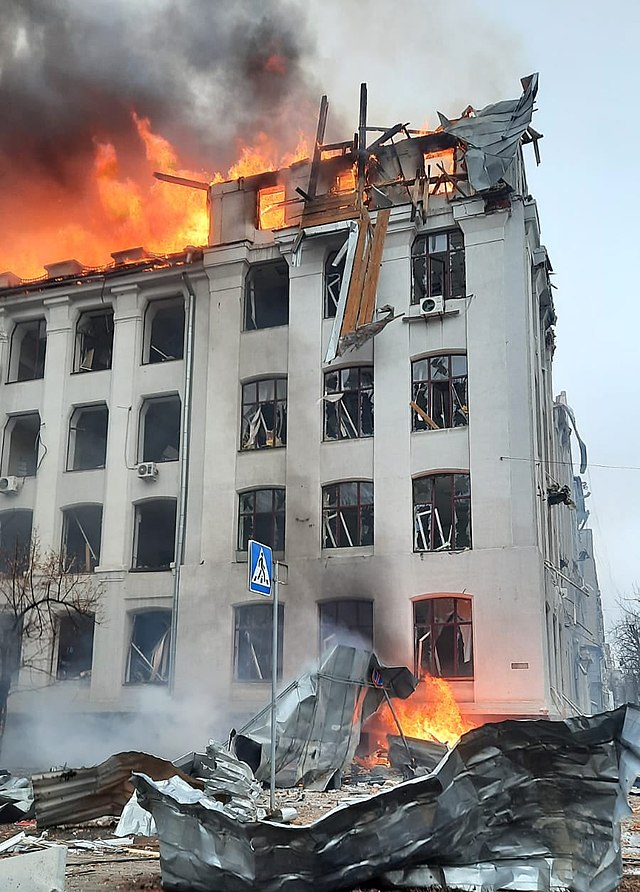To paraphrase Monty Python, what has war ever done for us?
World War II alone gave us flu vaccines, computers, radar, blood transfusions and jet engines. War’s interplay with science has seen the evolution of weaponry from throwing a spear, to shooting a gun, to launching a missile: all driven by science.
Overall, during war, science and technology get very good at two opposing things – killing people and saving lives. In a very broad sense, it’s Robert Oppenheimer and Werner von Braun against Florence Nightingale and Alan Turing. We develop deadlier weapons while simultaneously perfecting stronger armour.
Drone and missile warfare are fast becoming the future of combat. We have developed a more impersonal way of waging war; there are much lower risks of individual pilots being shot down in modern warfare. With advancements in engineering, we can instead cause devastation from afar. Militaries are now, more than ever, able to distance themselves from the results of their choices.
Scientific development has changed the strategy of war over the centuries. No longer do rows of men line up against each other and fire guns in turn. Now, science gives us the devastating ability to kill indiscriminately. This contributes to the most disturbing trend of modern warfare. Civilian casualties have risen dramatically. During World War 1, civilians made up 15% of casualties. This rose to 90% during conflicts in the 1990s.
Beyond the to-and-fro of weapons development throughout the centuries, war impacts science in all fields. As of June 2023, over 10% of Ukraine’s scientists had fled. The war has also damaged 120 research institutions to an estimated cost of US$500 million. The Karazin University of Kharkiv (pictured) is the second oldest in the country and has produced 3 Nobel Prize winners. Research spending (as a percentage of GDP) in Ukraine has been steadily falling for 20 years, and war may yet accelerate this trend. While Western and neighbouring countries have increased their percentage R&D spending in recent years, Ukraine will still be trailing behind when the war ends.

The impact on collaborative research is another, more subtle, consequence affecting the world of science. Nature has analysed international co-authorship of publications from Russia and Ukraine. The outbreak of war in 2022 appears to have accelerated a downward trend in collaborations with Russian scientists. Russian science is also drifting away from Western collaborators in favour of Indian and Russian co-publications.
The most recent Israel-Gaza conflict has already seen widespread disruption to universities. Israel has called up 500,000 army reservists, including researchers and university staff. University halls are also being used as temporary accommodation for soldiers or shelters for displaced Israelis, and the start of this semester has been delayed. 427 students and 12 academics have been killed in Gaza and the West Bank since October 2023 (Science, November 2023). 11 university buildings have also been heavily damaged. The discrepancy between Israel and Gaza’s technological capabilities makes this conflict inevitably imbalanced.
War has devastating effects: on global collaboration, scientific enterprise, and the progression of the human race. Conflict also triggers technological advancements, e.g. in medicine and defence, but we must not forget that this ‘advancement’ is only due to necessity. In all this, we must not forget that the most devastating loss, in any conflict, is that of human lives.

